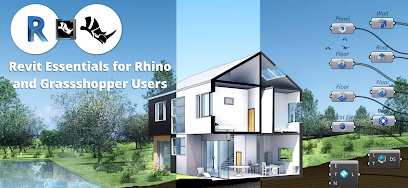The Bubble Pavilion is a project led by Professor Roberto Narvaez at the University of Seville (Spain), which combines geometric, structural, and constructive research with educational innovation.
Based on the geometric relationships found in spherical soap bubbles of equal radius, a geometric algorithm is designed using Rhinoceros and Grasshopper to adapt the natural arrangement of bubble clusters to any free-form surface. Subsequently, another algorithm is designed in Grasshopper to materialize the structure using laminated wood panels and digital fabrication tools.
The overall result is a self-supporting system with a uniform shell behavior that is highly resistant to typical architectural stresses. The pavilion takes the form of a single vaulted envelope, approximately 11 meters long and 6 meters wide. However, the designed system can be adapted to any size and shape for a multitude of applications in architectural design, including facades, roofs, or architectural envelopes of any kind.










